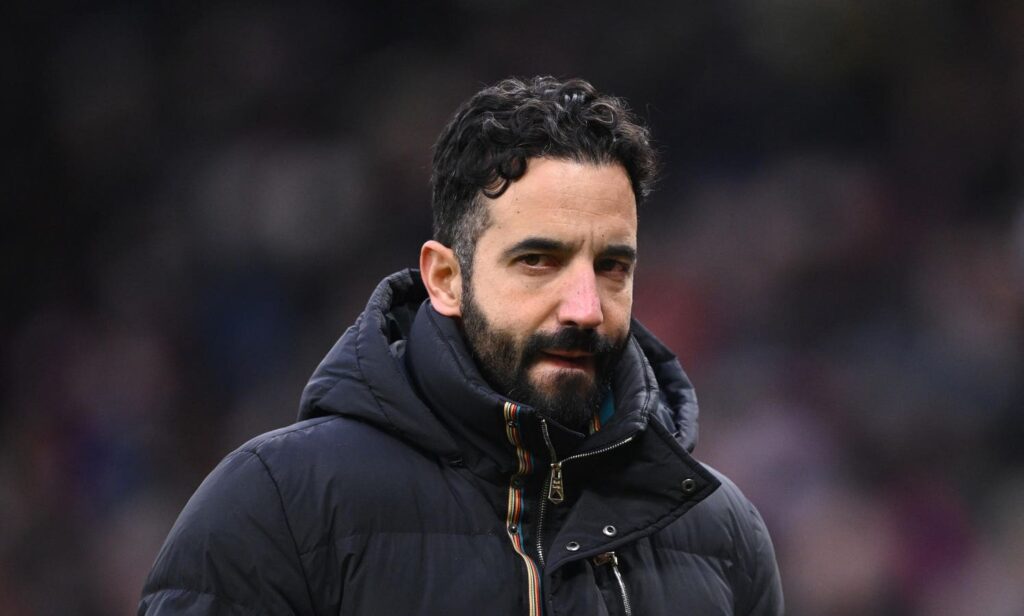MANCHESTER, ENGLAND – JANUARY 19: Ruben Amorim, Manager of Manchester United, looks on during the … [+]
In the aftermath of Manchester United’s best performance of his tenure as manager, Ruben Amorim expressed frustration to the media before talking to his players.
Although they were unlucky not to win, the Red Devils had just escaped Anfield with a creditable 2-2 draw against league leaders Liverpool.
The excellent performance was remarkable as a standalone piece of work and because it ended a dreadful run of form.
In the build-up, much of the discussion was about how bad the beating would be at a place that, even in the best of times, is a fixture that few United teams have looked forward to.
Just days earlier, Amorim had taken the remarkable step of suggesting the club was locked in a relegation battle.
Yet, before entering the dressing room, Amorim chose not to embrace the progress their performance displayed; he had more harsh words.
“I’m happy with the performance but not for the result. But I am really mad because of the other games,” he told the media.
“We have to move on. Congratulations to the lads for the performance, not for the result.”
A healthy frustration about the fact his team can reach such levels against the best side in the country, having played so poorly in previous weeks, is probably expected.
What is less easy to understand is why he’d so transparently let all that hang out in public before speaking directly to the team.
Even stranger was his explanation: He told the press he hadn’t spoken to the player yet “because I have to calm down and say the right things. We are in a difficult moment, but it’s hard not to get really mad.”
This begs the question: Did he not think they would hear what he was saying anyway, given his prior audience was the world’s media?
Soccer managers like Amorim know that communication in the world’s most popular game is multifaceted. There are discussions in the locker room and words said in public.
Whether they acknowledge it or not, most coaches use a combination of the two. But the narrative broadcast to millions often differs substantially from the words said behind closed doors.
It seems ridiculous that Amorim would not understand that. But the harshness of his comments throughout his United career suggests, at the very least, a recklessness with the words he’s willing to speak.
It’s either part of some high-stakes 10-dimensional strategy we cannot fathom or signs of a man with a kamikaze pilot approach to emotional restraint.
When asked to explain his claim that United was in a relegation battle, Amorim’s answer gave little clarity on which it might be telling the press it was because they needed a ‘shock.’
“I’m trying that every day. I’m trying to push this team every day,” he said.
“Sometimes maybe it’s not the best way, because I’m always challenging these players in everything I do, because I feel that we are not just the players, but everybody in Manchester [United] are too comfortable.
“So I think we need sometimes a shock. You can see it today, we were a different team. It’s not about the system, it’s the way we face this competition.”
The trouble for Amorim is that things have not been getting better consistently enough.
The Shock Treatment Goes On
Manchester United’s Portuguese head coach Ruben Amorim reacts during the English Premier League … [+]
Drawing at Anfield briefly saw an upturn in form with victory on penalties in the FA Cup against Arsenal and a 3-1 home win against Southampton.
But a dismal home loss to Brighton and Hove Albion this weekend had Amorim again administering the shock treatment.
“Another loss at home – it’s not acceptable,” he said in a downbeat post-match address.
“We got really anxious and nervous. They [Brighton] were better… We need to be a different team in all aspects.
“It’s clear [that it’s going to take a while to change things]. I’m not going to change the way I see the game. I’m very clear on that. The players are going to suffer. I’m really sorry, the fans are going to suffer. I have one way of doing things. We need to survive this moment.”
Addressing the bigger picture, the Portuguese coach was even harsher.
“In 10 games in the Premier League, we won two,” he added.
“Imagine what this is for a fan of Manchester United. Imagine what this is for me. So we are getting a new coach that is losing more than the last coach. I have full knowledge of that.
“Like I said, I’m not going to change, no matter what. I know we can succeed, but we need to survive this moment. Because I’m not naive, and I know that we need to survive now.”
Then, in another display of self-awareness or ridiculous naivety, he gave the media an even bigger story than they’d hoped.
“We are being the worst team maybe in the history of Manchester United. I know that you want headlines, but I’m saying that because we have to acknowledge that and to change that. Here you go, your headlines.”
Amorim might steady the ship, and we will look back on these outbursts in a different light.
But it’s hard to see how his raising the stakes or increasing the spectacle of despair is helping.
He’s been a very successful coach in his career so far, but at the moment, as the manager of Manchester United, he looks like he’s cracking up.
Read the full article here
